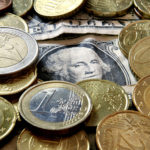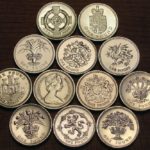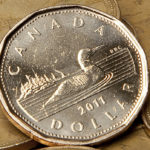Gold declined on Thursday, as Fed decided yesterday to scale back its asset purchases from $75 billion to $65 billion. A stronger US dollar also weighed, while assets in the SPDR Gold Trust, the biggest bullion-backed ETF, rose yesterday for the first time in two weeks.
On the Comex division of the New York Mercantile Exchange, gold futures for settlement in April traded little changed at $1 257.30 per troy ounce by 08:26 GMT, losing 0.39% for the day. Prices touched a session high at $1 267.70, while day’s low was touched at $1 255.40 an ounce. On January 27th, prices touched $1 276.70, the strongest level since November 19th.
Gold futures settled last 5-day period 1.3% higher, capping a fifth consecutive week of gains, the longest rally since September 2012. However, the precious metal settled last year 28% lower, the steepest annual decline since 1981 as investors lost faith in the metal as a store of value and amid speculation Fed will continue scaling back its monetary stimulus throughout 2014.
Fed stimulus
Yesterday, the Federal Open Market Committee (FOMC) concluded its two-day meeting and announced a reduction in its monthly bond purchases from the current pace of $75 billion to $65 billion. The FOMC cited improvements in the labor market and the pace of the economic growth, which started accelerating in recent quarters. This was the last meeting of the current Fed President Ben Bernanke as a FOMC vice-chairman, as his 8-year tenure ends tomorrow and will be succeeded by Janet Yellen on February 1st.
Fed reiterated that stimulus cuts will not be done automatically in $10 billion increments at each policy meeting and the asset purchases will be divided between $30 billion in mortgage debt and $35 billion in Treasuries.
Previous data has shown that the US economy grew at a 4.1% annual pace, which was the highest level in almost two years. Another report revealed the nations unemployment fell to a 5-year low of 6.7%, while retail sales rose for a ninth consecutive month in December, showing a continued strength of the US economy.
The central bank will probably continue to pare stimulus by $10 billion at each policy meeting before exiting the program in December, according to a Bloomberg News survey of 41 economists, conducted on January 10th.
A stronger US dollar also weighed on prices. The US dollar index, which measures the greenback’s performance against a basket of six major peers, rose by 0.30% on Thursday to trade at 80.87 by 08:21 GMT. Prices shifted in a daily range between day’s high and low, 80.92 and 80.63. Strengthening of the dollar makes commodities priced in it more expensive for foreign currency holders and limits their appeal as an alternative investment.
Gold drew some support as assets in the SPDR Gold Trust, the biggest bullion-backed ETP, were increased yesterday to 792.56 tons, for the first time since January 17th. The fund has lost 41% of its holdings in 2013. A total of 553 tons has been withdrawn in 2013. Billionaire hedge-fund manager John Paulson who holds the biggest stake in the SPDR Gold Trust told clients on November 20 that he wouldn’t invest more money in his gold fund because it isn’t clear when inflation will accelerate.
Chinese demand
Even though on the Shanghai Gold Exchange, trading volumes for bullion of 99.99 percent purity exceeded the daily average of the fourth quarter, which was about 11 525 kilograms, every day since January 6th, data revealed that they declined a fourth day yesterday, to the lowest level this year.
According to data by the World Gold Council, China probably overtook India as the largest global consumer in 2013.





